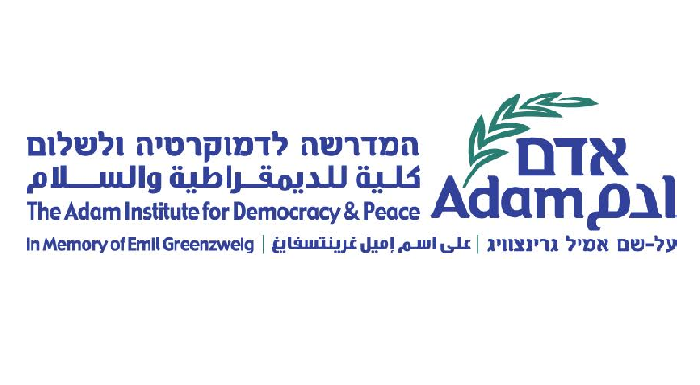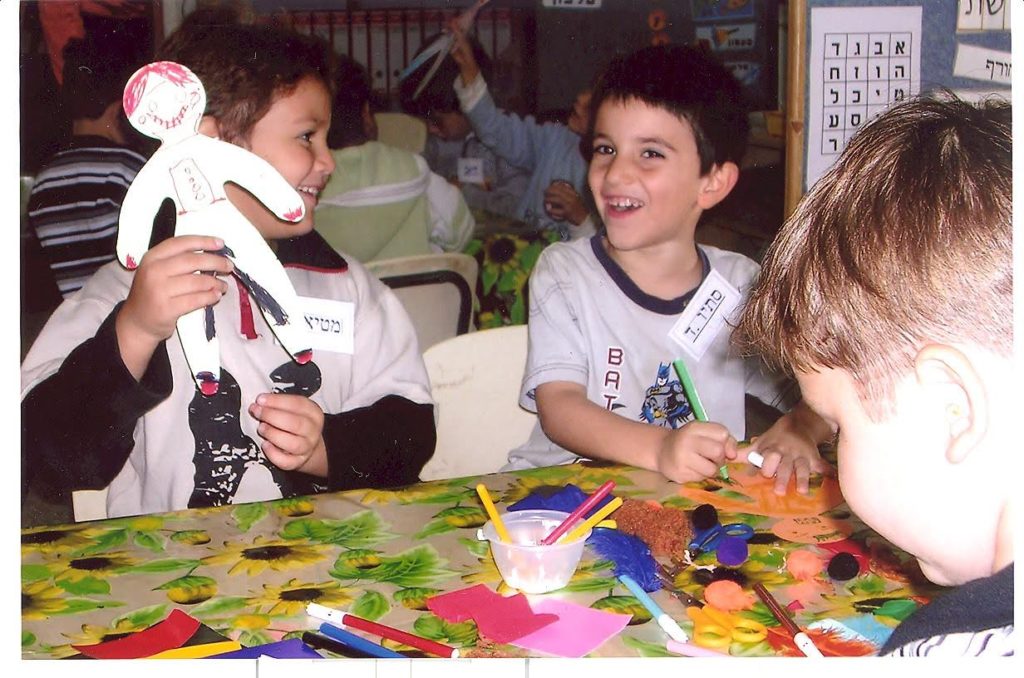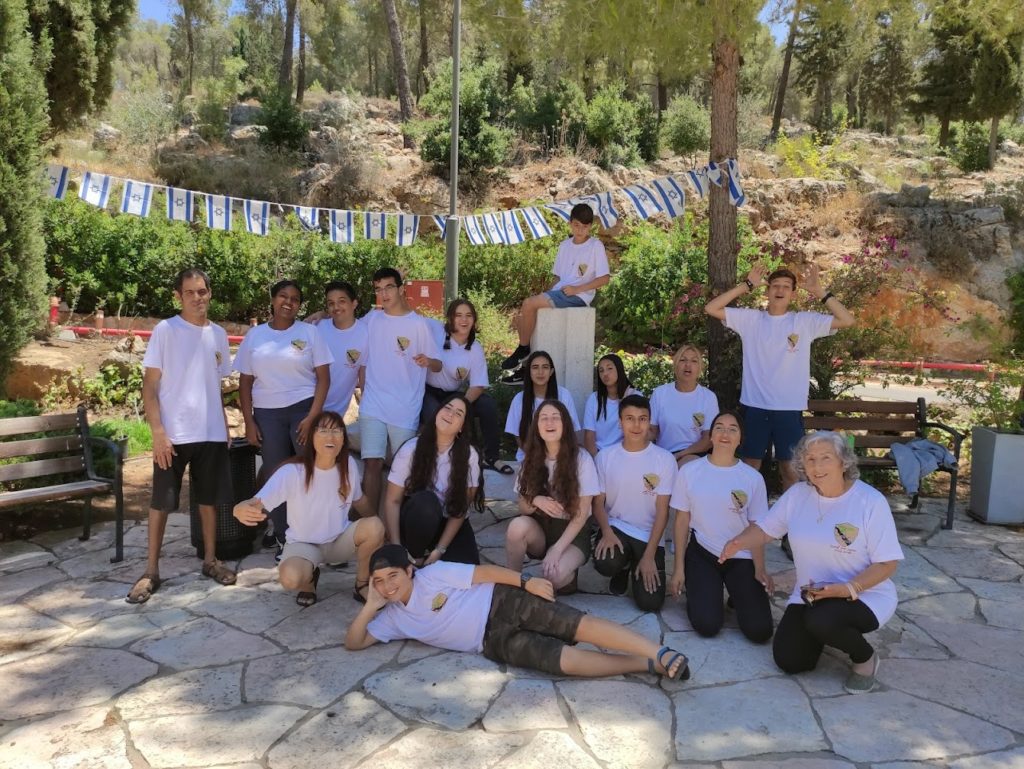
Dear All,
Many of you have reached out to check in and see how I’m doing, how we’re doing.
Thank you for your concern and caring. It means a great deal to me, to us.
In a sentence, we’re safe, yet heartbroken. We’re fine, but not okay.
Israeli society is enduring very difficult times since the brutal attack on the communities near the Gazan border and other cities throughout Israel. The level of cruelty carried out against children, elderly, young people and security personnel has left those of us who believe in human goodness amazed, pained and angry. We’re gravely concerned about the 230 hostages including babies, elderly and peace activists with whom we have had long-standing relations for many years. Our hearts are broken for the 1400 who were killed and the hundreds who were injured. The personal and collective trauma is great. For example, Kibbutz Be’eri has 107 residents killed or lost/kidnapped – that’s almost 10% of their inhabitants. That is proportional to New York City losing 800,000 people. (The numbers may have gone up – it’s so hard to keep track of it all.)
Some of you have asked about how you can help. What particular projects can you support to have an impact and foster wellbeing?
As many of you know, our nonprofit has been working in the field for more than thirty years, including extensive educational programs in southern Israel. In addition to general digital programming that we’re tailoring for students, teachers and parents nationally to address these especially challenging times, we’re focusing on two communities with whom we have a longstanding relationship and where we can have a valuable and direct impact.
1. TEEN LEADERS IN OFAKIM– We have a particularly warm, strong relationship with the Hosen Resilience Center’s Democratic Youth Leaders in Ofakim, a low-income city on the Gazan border. Ofakim suffered 50 casualties in this horrific war, and many residents were injured (Population 33,519).
The Democratic Youth Leadership group is an amazing cross-generational multi-ethnic group comprising Ashkenazim, Mizrachim, Ethiopian Israelis, neurotypical participants with an older participant with disabilities, different socioeconomic backgrounds and faith identities. We’ve run seminars on democratic principles, conflict resolution/mediation, and the connection between democracy and environment. It’s foundational work for teens who live in Israel’s geographic, economic and social periphery, disadvantaged in several realms. These acute disparities shape social status, income, access to education and social services. We wanted to equip young people with tools to bolster their education and afford them tools for social change. It’s been a great success.
Now we seek to give them a calm, peaceful place to heal. They love coming to the soothing pastoral Jerusalem Forest, where our offices are located. It’s near Yad Vashem, an ocean of greenery and quiescence. We’d like to raise money for a wellbeing seminar after the war that will allow them healing togetherness time in familiar surroundings. A one-night seminar including accommodations costs $5000. If we raise more, we can extend it to two nights or do a second seminar. If the spirit moves you, you can support these programs via this link or share with anyone else who’d like to do so.
Here’s a photo of the teens in the lovely forest during brighter days and more peaceful times.

I also want to share some video links that the teens prepared from previous seminars: this uplifting video preceded a seminar; this video captured the environmental seminar, and this link captured a previous seminar Ofakim.
2. BEDOUIN YOUNG LEADERSOur eyes and hearts are also with the Bedouin villages, recognized and unrecognized, in the Southern Negev desert, where we’ve run educational programming and have many colleagues and friends. The victims of the October 7th attack by Hamas include 19 members of the Negev Bedouin Arab community and 7 hostages. Many live below the poverty line, and about half live outdoors. They lack proper protective structures, and Bedouin children were also killed. Some 60 percent of the community is under 18.
In the past two years, the Adam Institute has run educational programs for the student leadership program of Desert Stars Institute, which brings together mission-driven young people to realize their individual and collective potential as change-making leaders. The programs are especially important because the economic, social and civic disparities are even more amplified among the Bedouin population, with its patriarchal tradition and complexity of its socio-demographic structure.
About 130 Bedouin young leaders were given democratic tools for social change, using „Betzavta- Adam Institute’s facilitation method„. For many, this was the first time to explore the right to equality, housing, civic rights, women’s rights, etc… They requested additional programs for this year, and we would like to accede that request. Here’s a photo from a previous seminar:

Learning happens through discovery – strengthening identity and granting legitimacy to all kinds of feelings/perspectives. Drawing on decades of experience, the Adam Institute is creating educational materials for students nationwide. That includes children.
3. CHILDREN’S LEARNING IN WARTIME: The Adam Institute’s programming for ages 5-8 comprises stories, songs, art and play to facilitate emotional expression, bolster a sense of belonging and validate difference in response to extreme situations. The program for ages 9-12, based on an experiential interactive exhibit, comprises games and educational tasks that teach discrimination, scapegoating, tolerance, diversity, and bullying. Participants learn equality, accepting difference, and the right to dignity; they’re encouraged to draw on personal experience. Both programs are suited to learning at home, in the classroom, or on Zoom.

Investing in youth is investing in our future. In the aforementioned examples, the youth leadership share lessons learned in Adam Institute seminars with peers in their programs, classrooms and communities, adding resonance and value. Children are given tools to process complicated events and their feelings in creative and constructive ways, with the support of their teachers and parents.
In times of war and distress, communal resilience provides a vital source of strength. We are a part of that right now. The young democratic leaders tell us that programs like ours helped foster solidarity and bolstes their ability to withstand extreme situations, like we’re facing today.
Initiating these projects is an attempt to do good for some young people who are going to need it. They’ve already told us as much. Helping children process these very trying times is also an overriding goal of ours.
Great educational responsibility rests on our shoulders. We’re committed to doing it. We’ll vigorously continue our work to promote Israeli democracy, shared living between Israeli Jews and Arab citizens of the state, and peace with the countries of the region.
It may sound lofty, but we know that there is no other way forward.
I won’t lie. These are painful and scary times.
We’d greatly welcome your partnership and support. This link takes you to our donation page, with various currency options available. Every sum will be allocated towards healing and building our future.
Please feel free to share this email with friends and individuals for whom our message might resonate. You may sign up for your mailing list via this link.
May we know better days.
In gratitude,
Uki
Executive Director
The Adam Institute for Democracy and Peaces
ukimaroshek@gmail.com/uki@adaminstitute.org.il

Uki Maroshek-Klarman Dyrektor wykonawczy The Adam Institute for Democracy and Peaces, a także jedna z jego założycieli. Stworzyła metodę „Betzavta – Adam Institute’s facilitation metod”. Poprzez nią dążyła do uczynienia edukacji demokratycznej dostępną dla wszystkich. Metoda angażuje poprzez doświadczalne nauczanie, jest ona głęboko zakorzeniona w filozofii, socjologii, psychologii społecznej jednocześnie dostarczając uczestnikom satysfakcji. Dr. Maroshek-Klarman opracowała również wiele programów z zakresu demokracji, edukacji obywatelskiej i pokoju. Dodatkowo jest autorką książek i artykułów oraz posiada doktorat z filozofii politycznej zdobyty na Uniwersytecie Tel Awiwu.
czytaj więcej
RP: Czy handel z antypodami będzie łatwiejszy?
Po podpisaniu 9 lipca br. porozumienia handlowego między Nową Zelandią a Unią Europejską do wejścia w życie negocjowanego od pięciu lat układu brakuje jeszcze tylko zgody parlamentów Europejskiego i Nowej Zelandii.
Krzysztof ZalewskiProgram staży w Instytucie Studiów Azjatyckich i Globalnych im. Michała Boyma
Instytut Boyma uruchamia program staży dla studentów, wychodząc naprzeciw prośbom i oczekiwaniom związanym ze skromną ofertą staży finansowanych ze środków publicznych w ośrodkach analitycznych/centrach badawczych w Polsce.
Wybory 2019: Polska wobec Azji, Afryki i Ameryki Łacińskiej
Spotkanie Instytutu Boyma poświęcone proponowanej przez polityków polityce Polski wobec Azji, Afryki i Ameryki Łacińskiej odbędzie się 4 października 2019 r. o godzinie 19:00.
Azjatech #25: Chiny stawiają na produkcję śmigłowców
Azjatech to cotygodniowy przegląd najważniejszych informacji o innowacjach i technologii w krajach Azji, tworzony przez zespół analityków Instytutu Boyma we współpracy z Polskim Towarzystwem Wspierania Przedsiębiorczości.
Azjatech #119: Sztuczna inteligencja daje przepis na eksperymentalne produkty spożywcze
Azjatech to cotygodniowy przegląd najważniejszych informacji o innowacjach i technologii w krajach Azji, tworzony przez zespół analityków Instytutu Boyma we współpracy z Polskim Towarzystwem Wspierania Przedsiębiorczości.
RP: Integracja jest kluczem do budowy silnej pozycji polskich firm technologicznych
Wchodząc w skład branżowego klastra, którego partnerami są międzynarodowo rozpoznawalni gracze, startupy mają szansę wzmocnić swą wiarygodność. To niezwykle istotne szczególnie w Azji, gdzie zaufanie w biznesie jest niezbędne do podjęcia współpracy - mówi Maciej J. Nowakowski z Polskiej Platformy Technologicznej Fotoniki.
Jakub KamińskiCzy To Lam będzie wietnamskim Xi?
Wietnam przechodzi faktyczną transformację ustroju. Krajobraz polityczny kraju od kilkunastu miesięcy tworzyły skandale korupcyjne, czystki w mającej monopol partii komunistycznej oraz bezprecedensowe - i prawdopodobnie wymuszone - rezygnacje z najwyższych urzędów.
Andżelika SerwatkaBadania opinii publicznej a postprawda w polityce indonezyjskiej
(Subiektywny) przegląd wybranych artykułów badawczych dotyczących stosunków międzynarodowych w regionie Azji i Pacyfiku publikowanych w wiodących czasopismach naukowych.
Anna GrzywaczWiceprezydent USA z oficjalną wizytą w regionie Zakaukazia
Dokładnie pół roku po podpisaniu w Białym Domu Deklaracji Waszyngtońskiej przez przywódców Armenii i Azerbejdżanu za pośrednictwem Stanów Zjednoczonych, do regionu Zakaukazia udał się z oficjalną wizytą wiceprezydent USA, J.D. Vance.
Ani MinasyanForbes: Swatanie po indyjsku. Jak współcześni Indusi kojarzą się w pary
W Indiach mówi się, że istnieją dwa rodzaje małżeństw: zwykłe i z miłości. Jeżeli wierzyć statystykom, w największym państwie subkontynentu aranżowanych jest aż 90 proc. związków matrymonialnych. Indie to także kraj o jednym z najniższych wskaźników rozwodów na świecie...
Iga BielawskaTydzień w Azji #41: Zacierali ręce, gdy USA pokłóciły się z Chinami. Teraz zrzedły im miny
Przegląd Tygodnia w Azji to zbiór najważniejszych informacji ze świata polityki i gospodarki państw azjatyckich mijającego tygodnia, tworzony przez analityków Instytutu Boyma we współpracy z Polskim Towarzystwem Wspierania Przedsiębiorczości.
Tydzień w Azji #282: Chińczycy szykują się na Trumpa 2.0. Będą duże zmiany
Przegląd Tygodnia w Azji to zbiór najważniejszych informacji ze świata polityki i gospodarki państw azjatyckich mijającego tygodnia, tworzony przez analityków Instytutu Boyma we współpracy z Polskim Towarzystwem Wspierania Przedsiębiorczości.
Tydzień w Azji #111: Energetyka łączy sąsiadów Chin i Rosji. Powstaje historyczny projekt
Przegląd Tygodnia w Azji to zbiór najważniejszych informacji ze świata polityki i gospodarki państw azjatyckich mijającego tygodnia, tworzony przez analityków Instytutu Boyma we współpracy z Polskim Towarzystwem Wspierania Przedsiębiorczości.
Forbes: Jeśli Chiny pójdą na wojnę, czy Europa pozostanie neutralna?
Tajwan nie jest sprawą Europy i Stary Kontynent nie da się wciągnąć w żaden konflikt wokół wyspy. Tak opinia publiczna zrozumiała przesłanie wywiadu udzielonego przez prezydenta Emmanuela Macrona w przededniu jego wizyty w Chinach.
Paweł BehrendtTydzień w Azji #100: Państwo ma ważną rolę do odegrania w kreowaniu czempionów. Tak to robią w Korei
Przegląd Tygodnia w Azji to zbiór najważniejszych informacji ze świata polityki i gospodarki państw azjatyckich mijającego tygodnia, tworzony przez analityków Instytutu Boyma we współpracy z Polskim Towarzystwem Wspierania Przedsiębiorczości
Przez lata obecność Japonii na międzynarodowym rynku zbrojeniowym była minimalna, na co wpływ miały restrykcyjne powojenne zasady pacyfistycznej japońskiej polityki zagranicznej. Jednak od ponad dekady działania Tokio wskazują na zmianę strategii w tym zakresie
Jakub WitczakTydzień w Azji #39: Tlą się kolejne protesty w Korei. Czy wypłynie na nich miejscowy Trump?
Przegląd Tygodnia w Azji to zbiór najważniejszych informacji ze świata polityki i gospodarki państw azjatyckich mijającego tygodnia, tworzony przez analityków Instytutu Boyma we współpracy z Polskim Towarzystwem Wspierania Przedsiębiorczości.
Strategiczna współpraca Indii i Armenii: aspekty geopolityczne i militarno-ekonomiczne
Przyjazne relacje Indii i Armenii nie są nowością, natomiast po tzw. 44-dniowej wojnie w Górskim Karabachu/Arcachu można było zaobserwować wyraźne ożywienie współpracy między tymi państwami.
Ani MinasyanAzjatech #6: Latająca taksówka, Technovation Challenge, klej przydatny w walce z rakiem
Azjatech to cotygodniowy przegląd najważniejszych informacji o innowacjach i technologii w krajach Azji, tworzony przez zespół analityków Instytutu Boyma we współpracy z Polskim Towarzystwem Wspierania Przedsiębiorczości. W tym numerze najświeższe wiadomości o technologiach z Chin, Uzbekistanu oraz Japonii.
W Instytucie Boyma wychodzimy z nową inicjatywą, która ma na celu pokazanie aktywności tej - często mniej widocznej - połowy społeczeństwa. Będziemy pisać, o tym, co kobiety myślą, mówią i robią. Będziemy też nagłaśniać to, co kobiety badają i o czym piszą.
Chiny kształcą najwięcej na świecie studentów w naukach ścisłych, technologicznych, inżynierii i matematyce (STEM). To niewątpliwie dobry trend dla nowoczesnej gospodarki, zwłaszcza w obliczu technologicznych ambicji Pekinu.
Paweł BehrendtChińskie stulecie w Azji? Jakiej polityki azjatyckiej potrzebuje Polska
Zapis debaty odbywającej się na Igrzyskach Wolności w dniu 14 listopada 2020 r.
AzjaTech#3: Kodeks drogowy dla aut autonomicznych i projekt nowego statku powietrznego
Azjatech to cotygodniowy przegląd najważniejszych informacji o innowacjach i technologii w krajach Azji, tworzony przez zespół analityków Instytutu Boyma we współpracy z Polskim Towarzystwem Wspierania Przedsiębiorczości. W tym numerze piszemy m.in. o japońskim kodeksie drogowym dla pojazdów autonomicznych, inteligentnej telewizji przemysłowej w Korei i otoczeniu regulacyjnym dla innowacji w Kazachstanie.
Centralnoazjatyckie gry wojenne
Prezentowane opracowanie ma na celu przybliżenie tematyki militarnego potencjału państw Azji Centralnej, zwłaszcza pod kątem rynku broni i inwestycji w modernizację sił zbrojnych. W opracowaniu dokonano analizy sytuacji militarnej poszczególnych republik, jak również przedstawiono zmiany jakie zachodziły w tym regionie wraz ze zmieniającymi się uwarunkowaniami geopolitycznymi od czasu upadku ZSRR.
Jerzy Olędzki

